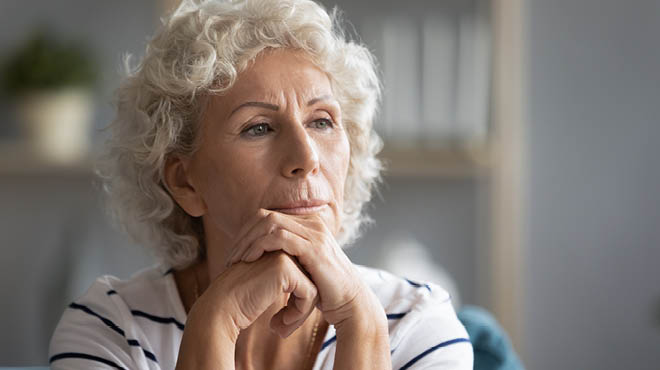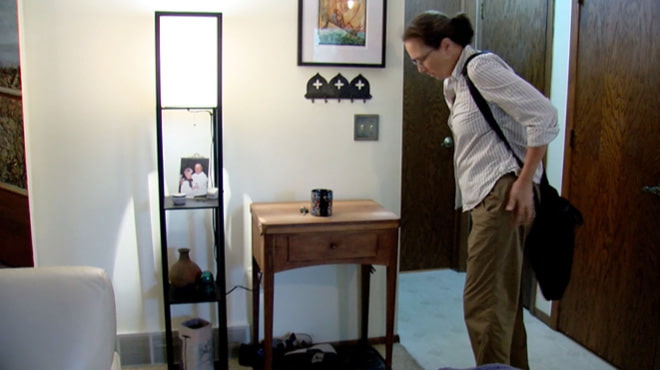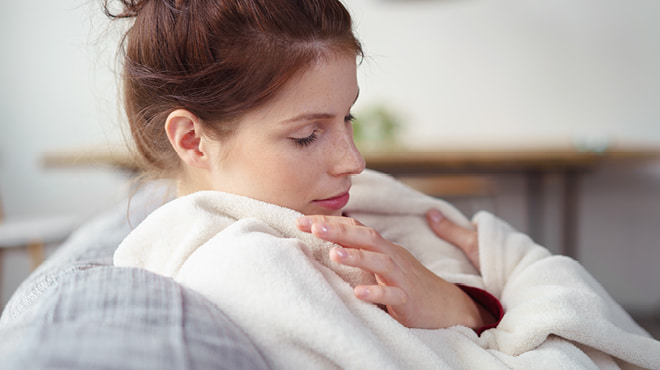Recent Posts
-

-
 Patient StoriesA lifesaver saved: An EMS veteran’s journey from rescue to recoveryNovember 14, 2025
Patient StoriesA lifesaver saved: An EMS veteran’s journey from rescue to recoveryNovember 14, 2025 -

Couple contract COVID-19 from asymptomatic friend: Wear masks, stay vigilant

Rick Jeddeloh has an image in his mind, and if everyone could see it as clearly as he does, he's sure it would change the hearts and minds of COVID-19 skeptics.
"The night my wife found out she was positive, and I had just entered the hospital with COVID-19, our 11-year-old daughter, Clara, just wanted a hug," says Rick, a Mankato, Minnesota, resident. “My wife and Clara went out on the screened-in porch wearing N95 masks and completely wrapped in garbage bags, and they hugged. They cried for half an hour straight because they wouldn't be seeing each other. That poor little kid. If people could see that picture as clearly as I see it, they'd give the virus the respect it needs and deserves.”
Rick's case of COVID-19 was more severe. In early August, he was in the hospital at Mayo Clinic Health System in Mankato for five days. His wife, Kirsten, was well enough to quarantine at home. Caught in the middle was Clara, who couldn't be near her parents, grandparents or friends for comfort. Although she tested negative for the virus, she'd been exposed, too, and would have to stay isolated for weeks.
The Jeddelohs had been following all the protocols since March when the nation shut down. They stayed home, wore their masks, washed their hands and had only gone out for the essentials.
For the first and only time, they went out to dinner with close family friends on July 23. None of these friends had shown any symptoms of COVID-19. Shortly after, a member of the family called to say she'd tested positive for COVD-19. Rick was in the Emergency Department in Mankato with severe symptoms on Aug. 4.
He had to be hospitalized for pneumonia due to COVID-19. Symptoms included fever, shortness of breath, tightness in his chest and low energy. He was on oxygen throughout his time at the hospital and was administered antibiotics for secondary infections, as well as an antiviral drug being used for some patients with moderate to severe symptoms on a trial basis.
Abraham Joseph, M.B.B.S., M.D., was Rick's physician for most of his stay. He says Rick was among the 15% of patients who develop moderate or severe disease. That's when blood oxygen levels drop significantly and hospitalization is required. About 85% of patients, including Kirsten, develop mild symptoms from the virus, including cough, fever, malaise and weakness.
"Rick didn't need to be in the ICU, so he was in the moderate disease category," says Dr. Joseph.
The antiviral drug Rick was given is in phase 3 randomized clinical trials. But Dr. Joseph says small single-group studies have shown positive results, including faster recovery times and reduced oxygen needs. In Rick's case, Dr. Joseph says Rick's condition stabilized and began to improve, and the drug may have played a part.
"The hardest part was the isolation ― not seeing the people that you love. And thinking of my daughter, with mom quarantined downstairs, and you're trying to get through all those feelings of mom and dad both being sick, and you're doing it alone," says Rick.
Rick had gone through treatment for prostate cancer 10 years prior. But he says, mentally, COVID-19 was even more difficult to endure.
The one bright spot, he says, was the incredibly compassionate care he received from Dr. Joseph and the nursing staff while in the hospital.
"There was one nurse, Pam, who could tell the isolation was getting to me," says Rick. "During one of my treatments, she stayed and just talked to me for half an hour. She could tell I needed it. I'll always remember nurse Pam."
Rick was a longtime basketball coach at Bethany Lutheran College and now is senior community development manager with the American Cancer Society. Kirsten is a third grade teacher. Both of them say they feel strongly about community health and education.
"From the start, Rick has been much more sure of wanting to share our story," says Kirsten. "I, on the other hand, felt that others look at you as though you have some awful plague. So my original feelings were to keep it quiet But as days and weeks have passed, and people have continued to reach out, I also realize that being vocal is what we should do. COVID-19 won't go away after the election. It does matter if we wear masks. It is crucial to avoid large groups. What our family knows is COVID-19 is real, and it can affect us all so differently."
The Jeddelohs say they hope their story helps other families realize that precautions need to be taken every day to stay safe. They caught the virus from someone without any symptoms, and so can everyone else. Dr. Joseph agrees. He says people need to stay vigilant, wear their masks, practice social distancing, and wash their hands frequently and thoroughly to prevent the spread of the virus.
"I hate the fact that COVID-19 is political. I just hate it. It's not," says Rick. "Wear your mask. It's about respect to other people. Do the things they tell us to do."
The family also is practicing gratitude ― for each other, for their time together, for their friends and family who showed so much love and support, and for their health.
"The little things don't bother me nearly as much anymore," says Rick.


